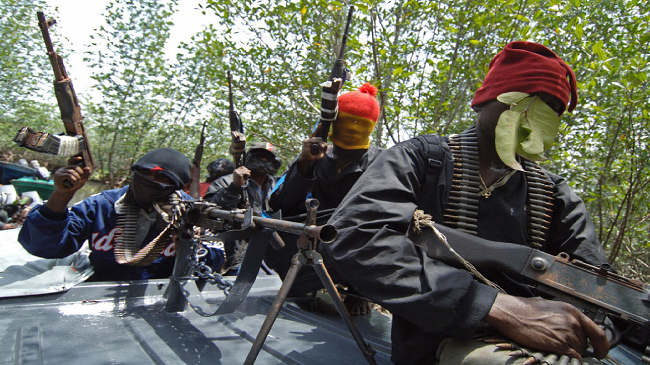Over the past few weeks, several states in the North-West and North-Central regions of Nigeria have witnessed a resurgence of bloody attacks, amidst the economic hardship the country is facing.
It was reported recently that 20 residents in Dawaki, a community near Kubwa in the Federal Capital Territory, were abducted by bandits.
Also, bandits kidnapped 80 villagers in Yar-Malamai, Faskari Local Government Area, Katsina State. Following the attack, only six houses remained standing in the community. The bandits operated freely for 10 hours, looting shops and setting houses and cars on fire.
The attack occurred a day after the bandits attacked a military camp in the area and killed some soldiers.
How can we ordinary citizens expect to be protected when even the military, our supposed protectors, are being targeted and killed by the bandits?
Nigeria’s security architecture is not performing optimally, as evidenced by the fact that security personnel are under-equipped, making them and civilians vulnerable to attacks by bandits.
According to Beacon Security and Intelligence, Nigeria experienced a staggering 2,583 deaths in the first quarter of the present administration. Meanwhile, SBM Intelligence reported an alarming 4,777 abductions within one year, not including the recent kidnapping of 24 university students in Kogi State. This constitutes a crisis of epidemic proportions. For context, SBM Intelligence also documented 3,620 abductions in the preceding year, from September 2022 to September 2023.
Zamfara is currently experiencing a severe crisis, with bandits wreaking havoc across the state. The most vulnerable members of the community, women and children, are bearing the brunt of the attacks. Emboldened by the state’s apparent powerlessness, the bandits have intensified their assaults, razing 50 villages and abducting 500 individuals in just one week. In a gruesome display of violence, they also killed five people, including two police officers, sparking widespread fear and devastation.
In one instance, residents of Munya Local Government Area in Niger State faced a similar ordeal when bandits attacked, killing three villagers and abducting several others. Meanwhile, Benue and Cross River states are grappling with deadly inter-communal conflicts. Furthermore, states like Kaduna, Plateau, Taraba, and those in the North-East region continue to struggle with persistent violence. Alarmingly, this pattern of violence is also being mirrored in the southern part of the country, highlighting the urgent need for comprehensive solutions to address the widespread insecurity across the country.
As security crises worsen, President Bola Tinubu should seize the opportunity to address the security crisis by taking immediate action on straightforward measures. This includes recalling police officers currently assigned to VIP protection details and reassigning them to frontline duties where they are desperately needed. Additionally, security strategies should be reviewed and overhauled to combat the insurgents, anchored by a central command center equipped with cutting-edge technology for surveillance, monitoring, and swift counteroffensive capabilities.
State governors are also falling short in their responsibilities. In the North-West, they should take decisive action as chief security officers of their states. Furthermore, individual states and regional collaborations should establish community security groups pending the authorisation of state police, to supplement the federal government’s efforts and effectively address the security crisis.
Since addressing these insurgencies requires a collaborative effort, governments at all levels – federal, state, and local – must work together and share responsibilities to effectively contain and combat the threats
